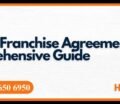
Dubai’s booming food delivery market has created unprecedented opportunities for entrepreneurs looking to enter the culinary industry without the overhead costs of traditional restaurants. With the rise of food delivery apps and changing consumer preferences, cloud kitchens in Dubai have become a lucrative business model that’s attracting investors from around the globe. If you’re considering launching your own delivery-only restaurant concept, understanding the cloud kitchen licensing requirements is your first crucial step toward success.
The Dubai food business license landscape has evolved significantly to accommodate this growing trend, making it easier than ever for entrepreneurs to establish their virtual restaurant Dubai operations. This comprehensive guide will walk you through everything you need to know about obtaining your cloud kitchen permit Dubai, from initial planning to full operational status.
Understanding Cloud Kitchen Business Setup Dubai Requirements
The foundation of any successful cloud kitchen operation begins with proper licensing and regulatory compliance. Dubai’s Department of Economic Development (DED) has streamlined the process for food delivery business license applications, recognizing the economic potential of this rapidly growing sector.
Essential Documentation for Your Application
Starting your cloud kitchen business setup Dubai requires meticulous preparation of documentation. You’ll need to provide a comprehensive business plan that outlines your concept, target market, and projected revenue streams. Your passport copies, visa documents, and Emirates ID are fundamental requirements that establish your legal status in the UAE.
The Dubai Municipality food license application demands detailed floor plans of your proposed kitchen facility, showing compliance with food safety standards and proper ventilation systems. Equipment specifications and supplier agreements demonstrate your commitment to maintaining high operational standards that Dubai’s regulatory authorities expect from food service establishments.
Financial documentation, including bank statements and proof of initial capital investment, reassures authorities of your business’s viability. Most cloud kitchen licensing applications require demonstrating access to at least AED 100,000 in startup capital, though this can vary based on your business scope and location.
Location and Facility Requirements
Choosing the right location for your cloud kitchen significantly impacts both your licensing success and operational efficiency. Dubai commercial kitchen license regulations specify that food preparation facilities must be located in areas zoned for commercial use, with proper access for delivery vehicles and waste management systems.
Your chosen facility must meet stringent health and safety standards, including adequate refrigeration, proper drainage, and fire safety systems. The Dubai food business license inspection process evaluates these elements carefully, so investing in quality infrastructure from the start saves time and potential complications during the approval process.
Kitchen layout design plays a crucial role in regulatory approval. Your facility must demonstrate clear separation between food preparation areas, storage zones, and waste handling sections. Proper handwashing stations, staff facilities, and equipment maintenance areas are non-negotiable elements that inspectors will evaluate during their site visits.
Regulatory Compliance and Food Safety Standards
Food safety regulations Dubai form the backbone of cloud kitchen operations, with strict guidelines governing everything from ingredient sourcing to final product delivery. Your cloud kitchen permit Dubai application must demonstrate comprehensive understanding and implementation of HACCP (Hazard Analysis Critical Control Points) principles.
Staff training documentation is essential for regulatory compliance. Your team must be certified in food handling practices, with regular refresher courses to maintain their qualifications. Dubai Municipality requires detailed records of all staff certifications and training schedules as part of the ongoing license maintenance process.
Temperature control systems, pest management protocols, and cleaning procedures must be documented and implemented according to Dubai’s health department standards. Regular third-party audits help maintain compliance and provide evidence of your commitment to food safety excellence that regulatory authorities value highly.
Virtual Restaurant Dubai: Business Model and Market Opportunities
The virtual restaurant concept has revolutionized Dubai’s food service industry, offering entrepreneurs unprecedented flexibility in brand development and market entry. Unlike traditional restaurants, cloud kitchens in Dubai can operate multiple brands from a single location, maximizing revenue potential while minimizing operational overhead.
Market Analysis and Consumer Trends
Dubai’s food delivery market has experienced exponential growth, with consumers increasingly favoring convenience and variety over traditional dining experiences. The food delivery business license category has seen remarkable expansion as residents embrace app-based ordering systems and contactless delivery options.
Consumer spending patterns reveal strong demand for diverse cuisine options, premium ingredients, and quick delivery times. Successful cloud kitchen operators leverage data analytics to identify trending flavors, optimal pricing strategies, and peak ordering periods that maximize profitability and customer satisfaction.
The expatriate population’s diverse culinary preferences create numerous niche opportunities for specialized cloud kitchen concepts. From authentic regional cuisines to fusion concepts, virtual restaurant Dubai operations can cater to specific demographic segments without the space limitations of traditional restaurants.
Technology Integration and Operational Efficiency
Modern cloud kitchen success depends heavily on sophisticated technology platforms that manage ordering, inventory, and delivery logistics seamlessly. Your cloud kitchen business setup Dubai should incorporate point-of-sale systems, inventory management software, and customer relationship management tools that streamline operations.
Integration with popular food delivery platforms like Talabat, Deliveroo, and Uber Eats requires technical infrastructure that can handle high-volume orders during peak periods. Automated order processing systems reduce human error while improving customer satisfaction through accurate, timely deliveries.
Kitchen display systems and preparation workflow management tools optimize staff productivity and reduce food waste. These technological investments not only improve operational efficiency but also provide valuable data insights that inform menu development and business strategy decisions.
Brand Development and Marketing Strategies
Creating compelling brand identities for your cloud kitchen concepts requires understanding your target demographic’s preferences and communication styles. Successful virtual restaurant Dubai operations invest heavily in professional branding, from logo design to packaging aesthetics that create memorable customer experiences.
Social media marketing has become indispensable for cloud kitchen promotion, with Instagram and Facebook serving as primary channels for showcasing menu items and engaging with customers. High-quality food photography and strategic content marketing build brand awareness and drive repeat orders.
Customer loyalty programs and referral incentives help establish long-term relationships with your target audience. Email marketing campaigns, personalized promotions, and seasonal menu updates keep your brands top-of-mind when customers consider their dining options.
Financial Planning and Dubai Commercial Kitchen License Costs
Understanding the complete financial picture of cloud kitchen licensing helps entrepreneurs make informed decisions about their business investments. Beyond the initial license fees, numerous ongoing costs must be factored into your business planning to ensure long-term profitability and compliance.
Initial Investment Requirements
The Dubai food business license application process involves various fees that vary depending on your business structure and location. Trade license fees typically range from AED 10,000 to AED 25,000, while Dubai Municipality food license costs add another AED 2,000 to AED 5,000 to your initial investment.
Facility setup costs represent the largest portion of your startup investment, with kitchen equipment, refrigeration systems, and safety installations requiring substantial capital. Quality commercial-grade equipment is essential for regulatory compliance and operational efficiency, typically requiring AED 50,000 to AED 150,000 depending on your kitchen size and menu complexity.
Security deposits for commercial leases, utility connections, and initial inventory purchases add to your startup costs. Most successful cloud kitchen operators budget at least AED 200,000 to AED 300,000 for comprehensive business setup, including working capital for the first six months of operations.
Ongoing Operational Expenses
Monthly license renewal fees and regulatory compliance costs are recurring expenses that must be incorporated into your pricing strategies. Food safety regulations Dubai require regular inspections, staff certifications, and equipment maintenance that generate ongoing expenses throughout your business operation.
Delivery platform commission fees typically range from 15% to 30% of order values, significantly impacting your profit margins. Successful cloud kitchen operators negotiate favorable terms with multiple platforms while developing direct-order channels to reduce dependency on third-party services.
Utility costs, staff salaries, ingredient procurement, and packaging materials represent your largest ongoing operational expenses. Efficient inventory management and waste reduction strategies help optimize these costs while maintaining food quality standards that customers expect.
Revenue Projections and Profitability Analysis
Well-managed cloud kitchens in Dubai typically achieve profitability within 12 to 18 months of operation, with successful concepts generating monthly revenues between AED 30,000 to AED 100,000 depending on their market positioning and operational scale.
Peak ordering periods during evenings and weekends generate the majority of cloud kitchen revenues, with successful operators achieving average order values between AED 45 to AED 75. Menu engineering and strategic pricing optimization help maximize profitability while remaining competitive in Dubai’s dynamic food delivery market.
Seasonal variations, economic conditions, and competitive pressures influence revenue projections, making financial flexibility essential for long-term success. Diversified revenue streams through multiple brand concepts and catering services provide stability during challenging market periods.
Step-by-Step Cloud Kitchen Permit Dubai Application Process
Navigating the cloud kitchen licensing application process requires systematic preparation and attention to regulatory details. Dubai’s streamlined business setup procedures have simplified many aspects of the process, but thorough preparation remains essential for successful approvals.
Pre-Application Planning and Consultation
Professional consultation with business setup specialists familiar with Dubai food business license requirements can significantly accelerate your application process. These experts understand current regulations, common approval challenges, and strategies for avoiding typical delays that frustrate first-time applicants.
Market research and concept validation should be completed before beginning the formal application process. Understanding your target market, competitive landscape, and revenue projections helps create compelling business plans that regulatory authorities find credible and well-researched.
Location scouting and preliminary facility assessments help identify potential compliance issues before committing to lease agreements. Early identification of infrastructure requirements allows for better negotiation with landlords and more accurate budget planning for necessary modifications.
Documentation Preparation and Submission
The Dubai Municipality food license application requires extensive documentation that must be prepared meticulously to avoid delays or rejections. Certified translations of foreign documents, notarized agreements, and professional architectural drawings are typically required components of complete applications.
Business plan preparation should demonstrate clear understanding of Dubai’s food service market, realistic financial projections, and comprehensive operational procedures. Regulatory authorities evaluate these documents carefully to assess your business’s viability and compliance commitment.
Facility documentation must include detailed floor plans, equipment specifications, and safety system designs that meet current building codes and health regulations. Professional architectural services ensure your facility plans comply with all relevant standards and requirements.
Inspection and Approval Timeline
Cloud kitchen business setup Dubai inspections typically occur within 10 to 15 business days after documentation approval, though complex applications may require additional time for thorough evaluation. Preparation for inspection visits ensures smooth processes and minimizes potential delays.
Inspector evaluations focus on food safety systems, equipment functionality, staff facilities, and waste management procedures. Comprehensive checklists and staff training help ensure your facility meets all inspection requirements on the first visit, avoiding costly re-inspection fees and delays.
Final approval notifications typically arrive within 5 to 7 business days after successful inspections, allowing you to begin operations immediately upon receiving your official cloud kitchen permit in Dubai. Celebration of this milestone marks the beginning of your entrepreneurial journey in Dubai’s exciting food service industry.
Conclusion
Obtaining a cloud kitchen license in Dubai represents an exciting opportunity to enter one of the world’s most dynamic food service markets. The streamlined regulatory environment, combined with strong consumer demand for food delivery services, creates favorable conditions for entrepreneurial success in this growing sector.
Success in the cloud kitchen business setup in Dubai process requires careful planning, adequate financial resources, and commitment to maintaining high operational standards. The investment in proper licensing and regulatory compliance pays dividends through operational stability and market credibility that customers and partners value highly.
Dubai’s continued investment in digital infrastructure and business-friendly policies positions the emirate as an ideal location for innovative food service concepts. Entrepreneurs who navigate the licensing process successfully find themselves well-positioned to capitalize on the tremendous growth opportunities in this exciting industry.
Frequently Asked Questions
How long does it take to obtain a cloud kitchen license in Dubai?
The complete cloud kitchen licensing process typically takes 4 to 6 weeks from initial application submission to final approval, assuming all documentation is complete and facility inspections pass on the first attempt.
What is the minimum capital requirement for starting a cloud kitchen in Dubai?
While there’s no official minimum capital requirement, successful cloud kitchen business setup Dubai typically requires AED 200,000 to AED 300,000 including licensing fees, equipment, facility setup, and initial working capital.
Can foreign nationals obtain a cloud kitchen license in Dubai?
Yes, foreign nationals can obtain Dubai food business licenses through various business structures including sole proprietorships with local sponsors, partnerships, or by establishing companies in Dubai’s free zones.
Do I need separate licenses for multiple food brands from one kitchen?
Generally, one cloud kitchen permit Dubai allows operation of multiple brands from a single location, though each brand must be registered and comply with Dubai Municipality’s food safety requirements.
What are the ongoing compliance requirements after obtaining the license?
Ongoing requirements include annual license renewals, regular health inspections, staff food safety certifications, and maintaining compliance with food safety regulations Dubai including HACCP protocols and temperature monitoring systems.






